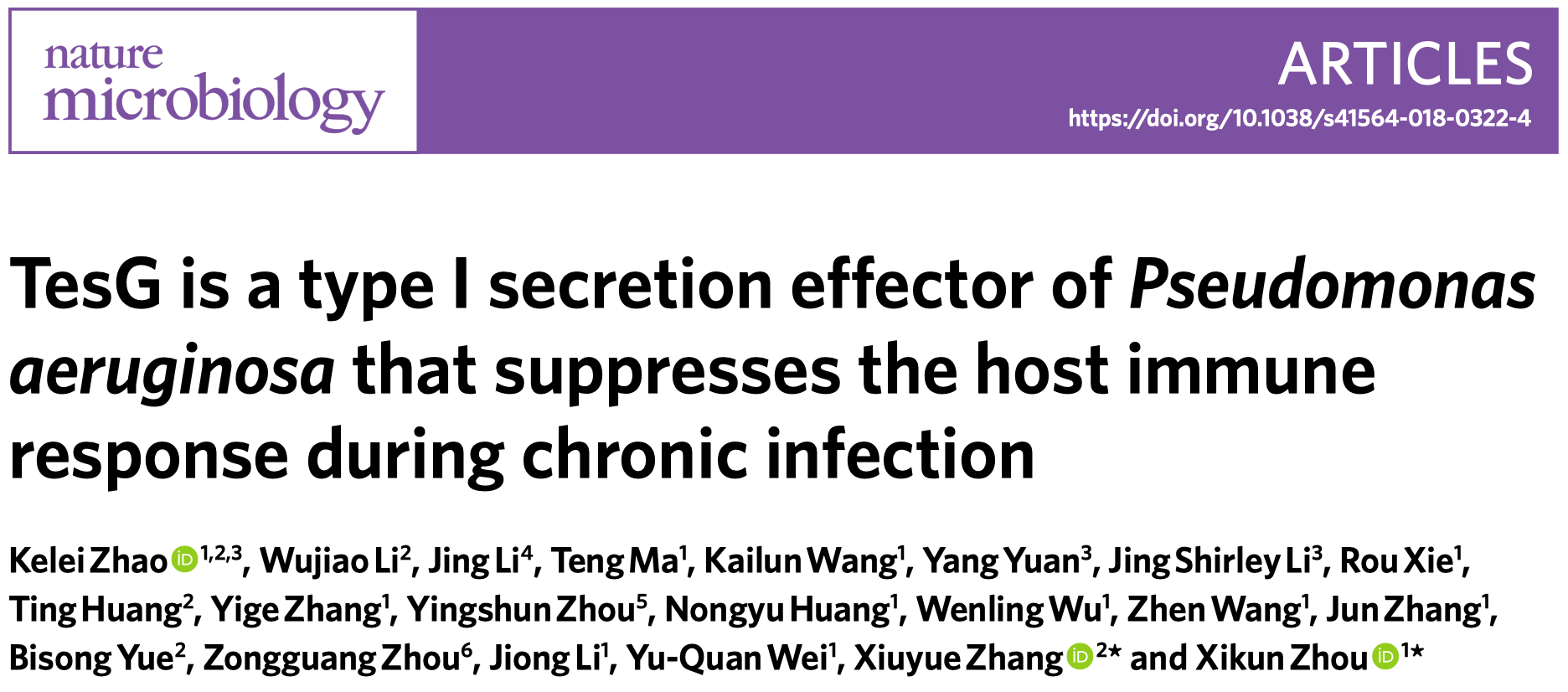Professor Xiuyue Zhang at College of Life Science and Associate Professor Xikun Zhou at State Key Laboratory of Biotherapy of Sichuan University co-published their recent work entitled TesG is a type I secretion effector of Pseudomonas aeruginosa that suppresses the host immune response during chronic infection in the international authoritative academic journal Nature Microbiology (Impact factor: 14.174). The first author of this paper is Dr. Kelei Zhao, who was graduated from Sichuan University in 2014 and employed by Chengdu University as a distinguished associate professor. Professor Xiuyue Zhang and associate Prof. Xikun Zhou are the co-corresponding authors.

Pseudomonas aeruginosa is an important opportunistic pathogen with large genome size and intricate intracellular regulatory networks normally causes acute and chronic infections in patients with compromised immune systems. By using in situ RNA sequencing, the research team finds that P. aeruginosa adopts different metabolic pathways and virulence repertoires to dominate the progression of acute and chronic lung infections. Notably, a virulence factor named TesG, which is controlled by the vital quorum-sensing system and secreted by the downstream type I secretion system, can suppress the host inflammatory response and facilitate the development of chronic lung infection. Mechanically, TesG can enter the intracellular compartment of macrophages through clathrin-mediated endocytosis, competitively inhibit the activity of eukaryotic small GTPase, and thus suppress subsequent neutrophil influx, cell cytoskeletal rearrangement of macrophages, and the secretion of cytokines and chemokines.

The identification of TesG reveals a type I secretion apparatus of P. aeruginosa that functions during the host-pathogen interaction, and may open an avenue for the further mechanistic study of chronic respiratory diseases and the development of antibacterial therapy.
Original link:https://www.nature.com/articles/s41564-018-0322-4
